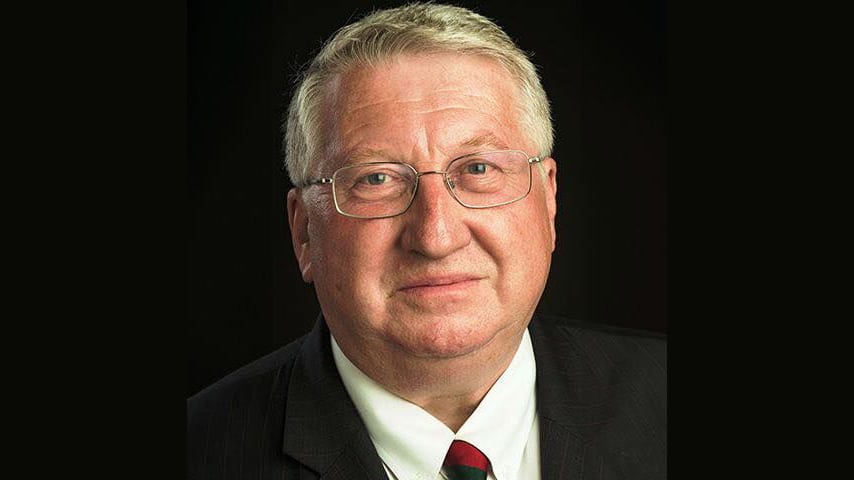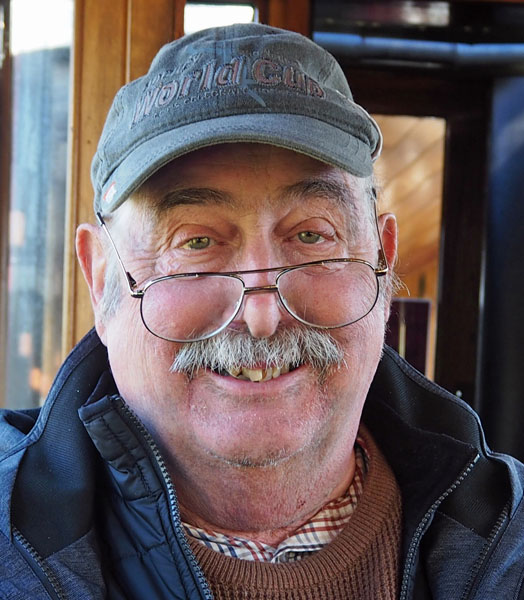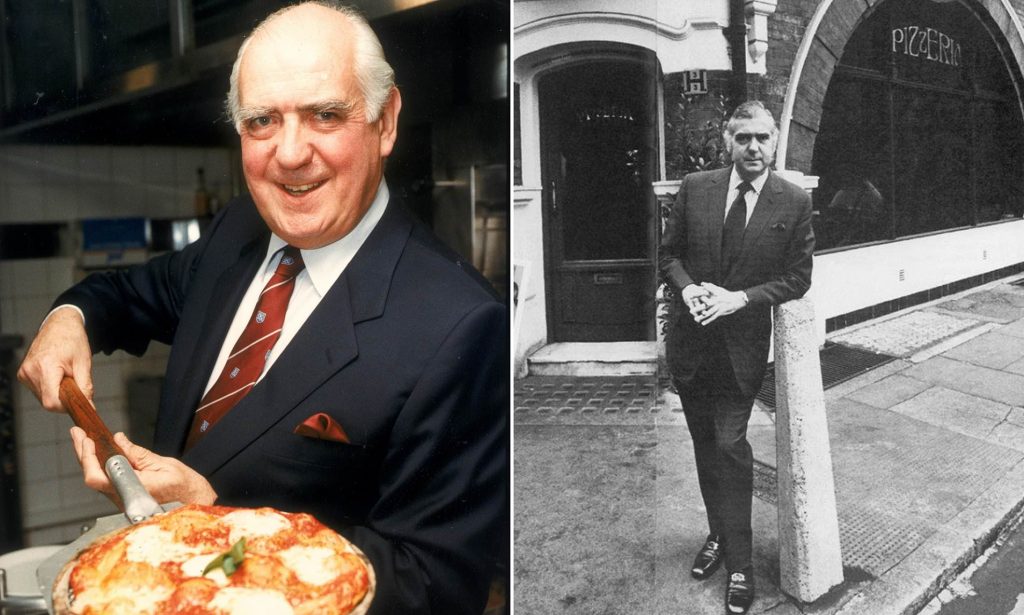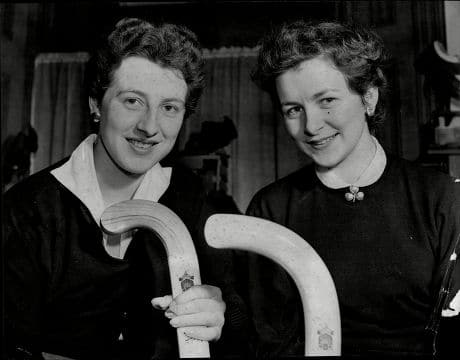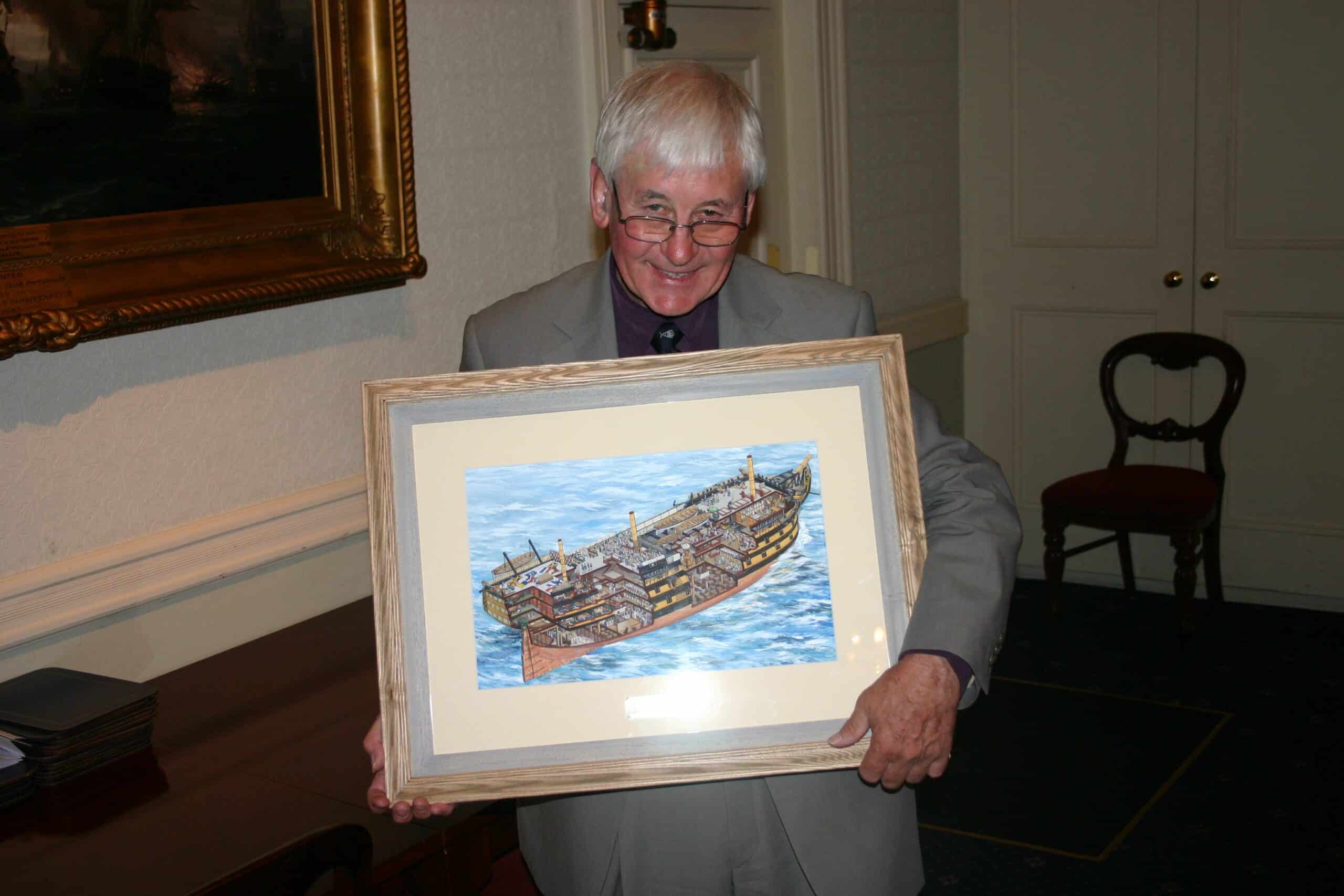
Lt Commander Alan Walker RN receiving a painting of HMS Victory at the time of the Royal Navy centenary.
Although we knew Alan was very ill, his death on the 17 February came with great sadness to all his friends at The Hockey Museum and throughout the hockey world. Hockey and history were two of his greatest passions and his bywords were loyalty and friendship. It is a sure fact that had he known the date of his death he would have told us of some great naval or hockey event that took place on that day.
Alan leaves a legacy to Royal Navy Hockey of which both the other services are very envious. It has been a life’s work and the history of Royal Navy hockey which he started will be completed by his friends. We can never do it in Alan’s style but do it, we will. Talking of Alan’s style, we must embrace the use of ‘Alan’s Verse’ which he used frequently to deliver speeches, reports and appreciations. We have many of these verses in the file but here are a few that tell a little of his early life as a sailor.
Alan’s Story: Aspects of War.
In nineteen hundred and sixty-five,
After five years training on shore,
I joined a Commando Carrier Albion,
She took me off to war.
I’d joined the Navy years before,
It certainly wasn’t to fight.
To serve my Queen and Country,
By giving all enemies a fright.
For six months I carried another man’s case,
Getting familiar with my job’s future employ;
And gradually lots of stuff fell in place,
And I took over from this other boy.
I helped him then with his studying,
And the exam he took and passed;
All this was done in a war zone,
As we served before the mast.
We’d take a load of Commando Marines,
Fly to jungle round the back,
Insert them into head hunters’ scene,
And then head out to go back.
On t’ way we’d pick up another lot,
Who we’d put in three months before;
It was quite the usual thing you got,
Only half those you put in before.
It became quite the norm for us,
To lose quite a lot of old mates;
People you’d got used to being around,
That now gone thro’ t’ Pearly Gates.
Putting ‘em in and taking ‘em out,
Of the jungles round Borneo and Malaya,
We were just a great big ferry boat,
But as such a major player.
From these early service days as a sailor, like so many of his era, Alan discovered hockey and became very competent at it. He made over one hundred appearances for the Navy between 1968 and 1985 in an era when the standard of services hockey was very high. He duly received his commission and became a ‘schoolie’ or more correctly an Education Officer. This naturally drew Alan into coaching, his vehicle for sharing his passion. He was one of the very first qualified hockey coaches in England in 1970 and went on to establish high quality coaching in the Royal Navy and was an integral part of the development of the national coaching framework in England. Anyone who attended one of Alan’s residential coaching courses will remember it with affection. He was rightly proud of helping many hundreds if not thousands of people into hockey coaching and of course through those coaches countless people came into hockey.
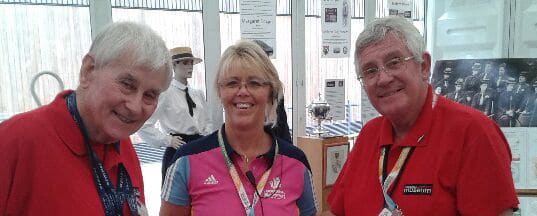
Alan Walker at The Hockey Museum’s exhibition during the EuroHockey Nations Championship, 2015.
Alan’s coaching and organisational skills drew him onwards and upwards. No list could ever be complete because he did so much. He played hockey for the Royal Navy over one hundred times as well as for the Combined Services. In similar vein, he was Chief Coach to the Royal Navy and then the Combined Services. In 1986 Alan took retirement from the Royal Navy only to become secretary of Navy Hockey, a post that he retained for twenty-five years. In the 1990s Alan re-founded Gosport HC and he took great pride in seeing their junior teams win national awards. Having introduced his daughters to hockey at Havant HC, he became their club coach at a time when they were the top club in the UK. He was on the National Coaching Committee and became a Hockey Association (HA) Staff Coach, which led to him becoming England U21 Manager in 1992. This was an inspired appointment as Alan took the team to Bombay in 1993 only to be bombed out of their hotel. It was his cool military experience that held things together and resulted in the team’s return to Heathrow ‘fully suited and booted’ as though nothing had happened. On the amalgamation of the All England Women’s Hockey Association (AEWHA) and the HA Alan was appointed Chairman of the first ever joint National Coaching Committee.
After over half a century in Naval Service – or to put it in Alan’s more precise terms, fifty years and 285 days – he retired on Trafalgar Day 2010. Prior to this Alan was key to the celebration of the centenary of Royal Navy Hockey, which was discharged in real style with a splendid dinner and lots of hockey at HMS Temeraire, better known in the hockey world as Burnaby Road. It was here that a tangible and lasting Thank You was made to Alan. Thinking that he was attending an event to present the prizes he found himself confronted with new wrought iron gates to the stadium pitch, announcing to the hockey world that is was now The Alan Walker Stadium.
In Alan’s own words the proudest day of his life was the day commemorating the Royal Navy Hockey Association Centenary. The event was a cocktail party on board HMS Victory – where else? A brilliant evening culminated, in the setting sun, with an amazing display by the Band of HM Royal Marines, Portsmouth. Flanked by two Admirals, special permission was given for Alan to take the salute. Alan described of himself: “There was little old Alan Walker, stood in his civvy suit when the Drum Major marched up, saluted dramatically and said ‘Display completed, Sir. Request your permission to play the National Anthem and then to march off to the Regimental March – ‘A Life on the Ocean Wave’. Bursting with sheer pride I blustered out, “Yes Please!”
Having devoted his life to the service of hockey, both in the Royal Navy and as a civilian, those of us who knew of his industry and dedication to our sport cannot understand why he was never to receive an Honour.
Mike Smith, Curator, 2 March 2017

